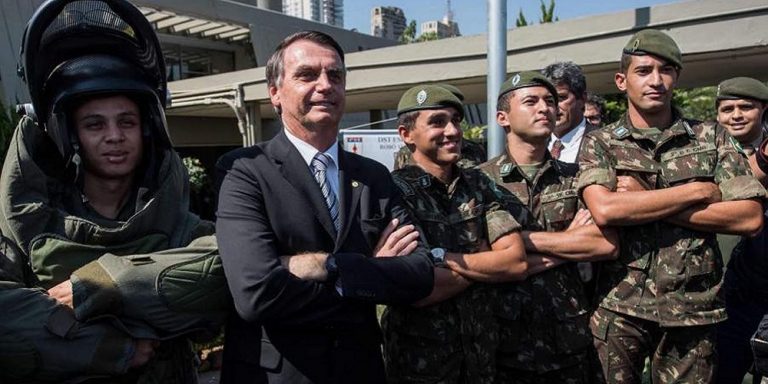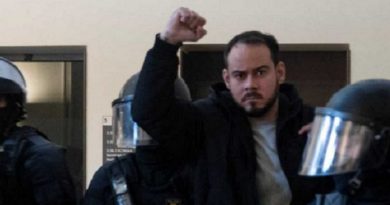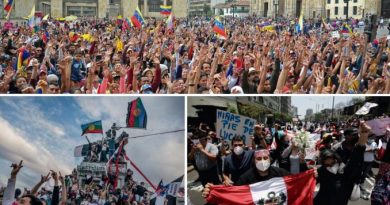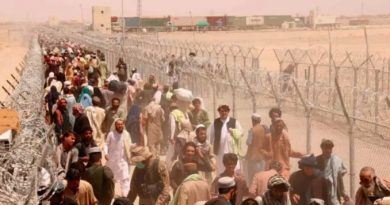Brazil: The phenomenon Bolsonaro. ¿Point of arrival or time of acceleration of the crisis?
Bolsonaro's victory in elections in Brazil feeds a debate strategic and international scope. ” Every crisis contains important factors of indeterminacy. Moods, the opinions and forces, both hostile and friendly, They are formed in the same process of the crisis. It is impossible to foresee in advance mathematically. You have to measure them in the fight, through struggle, and provide the necessary policy corrections based on these measurements taken from life.” Leon Trotsky, The fight against fascism in Germany
The first responses from the PT, progressivism and intellectuality are, vacillating, surface, contradictory and some even cowards. They express themselves the trouble digesting the impact of the result by a sector of the "left", disorientated, buried in his vulgar common sense, in its "institutional" look of the facts and their organizational adaptation to a political regime, economic and social emerged from negotiations with the Dictatorship, "Rotten" to the core. A nice, show its structural inability to bring about the changes he had promised and therefore to face the new ultra reactionary phenomenon is developing.
The deep economic crisis and its corollary of political crisis and the policies that faced the PT are some of the keys to the defeat of the party, others can be found in the path of the 14 petista years of government.
The crisis of the 8th world economy and the fifth largest country in the world, It is maintained since early 2014 and it is the longest and deepest in recent 115 years[1]. While the legal process known as Lava Jato to lay bare the rottenness of the political system, excited the crisis that had as one of its features is a widespread feeling anti PT not only among the urban middle class that sometime accompanied Lula, but led to Bolsonaro he clawed in the second round 70% of the votes in the ABC paulista, cradle of the Workers Party, which bodes destination for that game collapse. While literally demolishes the other party supporting the political system, even before, the PSDB of Fernando Henrique Cardozo, Alkim whose candidate came fourth with less than 5% of votes.
The cursory glance of progressivism that does not recognize their inability to address the problems noted, nourishes that profound political and social magma walking and causes discomfort for much of the Brazilian people. While concludes by way of self-justification that the road would be open for fascism and the defeat of the people would have already accomplished. Nothing could be farther from reality that vision.
The massive movement of women who touched millions streets of major cities before the elections under the slogan "Ele Nao, He never", It is just a sign of the vitality of the mass movement, there needs to place the opposite pole to the ultra reactionary forces that coalesced around Bolsonaro. The same as the first antifascist reactions of students at the University of Sao Paulo and other, the day after the second round. These are facts that show anyway, what develops is a dynamic growing social polarization that are seeing the first maneuvers of confrontations coming. If this forecast is correct, It is vital to correctly interpret the reasons for the triumph of Bolsonaro and dynamics of the current political moment.
complete failure of the Workers Party and the reformist progressivism
The program for the PT came to power in 2003 It was based on three pillars that aroused hope in major sectors of the Brazilian people: A progressive redistribution of income, Politics reform to make it more democratic and less corrupt political system and an agenda of social reforms that had as one of its main points of access to land for hundreds of thousands of peasant families, among many other rights that were expected. Nevertheless, not only he did not develop a policy that would give way to a genuine process of anti-capitalist transformation, that was not his project, but also failed to meet any of the objectives proposed and which had stimulated the wave of sympathy that led the government.
Some examples of major policies developed by the PT can show this failure: The plan Bolsa Familia was presented as the main tool for fighting poverty and marginalization. After the initial momentum of the Plan and from 2008 reducing poverty stopped. In a documented text, international analyst Alejandro Teitelbaum cites a report by the Brazilian Institute of Geography and Statistics: "The rate of decline in poverty and indigence slowed considerably - rather stagnated- in the period 2008/2016 over the period 2003/2008: in the period 2003/8 the number of poor and indigent decreased 24 millions, from 77 million to 53 millions. While in the period 2008/16 the number of people living below the poverty line and indigent decreased by one million: from 53 a 52 millions"[2]. The amount you receive those families with dependent children does not cover the food basket.
In regard to what happened is similar wages: The minimum wage they receive 45 millions of people, more than half of the total working masses, has doubled in real terms since the 2003 but currently only covers the 70% of the Basic Basket (food and other goods)[3].
If on the other hand we review the agricultural issue we find that at the level of the settlement and distribution of land to landless peasant families what happened is even worse: In 2003 agrarian movements, including the MST, "The government had required the establishment of 400 thousand landless families. The government initially said to have the capacity to seat 140 thousand families in its first year, after the promise to 60 thousand families. Ending the year, Nevertheless, there was little more than 20 thousand families settled "[4]. But for the 2005 giving land had been paralyzed.
The institute says that while working the family farm enterprises 24 % of cultivated land but it produced the 38% total gross, agribusiness, It is big business, They had control of 75% land but hardly produced the 44% total gross. That is not only no progress in giving land to peasants without them, but the agroindustrial extractivismo which reoriented the production for export was promoted, weakened national food sovereignty, reprimarization deepening the country and concentrating on fewer and fewer hands tenure and ownership of productive land, even advancing with a brutal deforestation on the Amazon.
Complementing this information is necessary to add that another sector clearly benefited from PT governments was the financial capital: With the mechanism of public debt[5], that for 2014 reached the 70% del PBI, It is transferred annually to the holders of the Bonds of that debt 46% federal budgets, in that year it exceeded two trillion reais. These securities are held by banks and investment funds that exponentially increased their profits in the period, at the expense of preventing the development of redistributive policies promised. Senior officials at the Central Bank of Brazil and the Ministry of Finance in 14 petistas years governments can symbolize that submission to financial capital, Fernando Meirrelles, Bank of America man, He was president of the Central Bank's 8 years of the Lula government, and then Finance Minister Temer and Joaquín Levy IMF member of staff was Finance Minister Dilma.
If the above examples are some indicators of the failure of the PT and Lula and Dilma governments to implement its own program in the economic and social field and assimilated to the pressures of the elites, The same happened with the proposals in the political arena and popular participation. Adaptation in this sense is of such magnitude that led to Dilma and the PT to support the institutional coup passively, from the game of those corrupt institutions, without face resolutely on the streets.
The same thing happened after the process that led to prison Lula, his application falls, because he trusts, to present, in an institution like justice he had legitimized the blow to his party colleague. He 24 August 2018, one month and one week of the first round and then explain how, a fine calculation of court made by Lula times allow him to stand for election, Emir Sader writes: "There is more power in the small cell Curitiba, where Lula articulates a return to the presidency of Brazil, that in all these buildings emptied of legitimacy. "[6] Needless to comment on this phrase for measuring myopia caused by adaptation to the regime of one of the leading thinkers of PT.
But, What is this adaptation? What it was done to advance the democratization of a system firmly protected by the military, where the negotiation of perquisites, privileges and corruption is a permanent part of the government practice, where the electoral system itself guarantees the presence of rent parties and a parliamentary fragmentation that facilitates negotiation Spurious, nothing was done. Nothing but join him. Even help further limit voting rights by reducing the spaces of political campaigns in the media in a way that benefits the parties and candidates of the regime. Y, finally Lava Jato, like in 2005 He had been the Mensalão, he discovered the structural corruption of the entire system. And he had the PT as one of the main managers of such corruption.
These are some of the material bases explaining the lopsided PT hands of Bolsonaro. Failure to comply with their own proposals.
By failing to carry out even the "possible" minimal changes, He posed in the program that came to the government not to confront the country's elites and foreign, the PT opened the door through which he entered, with massive electoral support, an ultra reactionary candidate.
June 2013, inflection point
But the Brazilian crisis does not appear as a result of the electoral process, even with the operation Lava Jato, Nor is hit product Dilma. The turning point of a situation that had been incubating since well before June is 2013 and gave first to the streets, expressed in a period of big mobilizations that open cause the current social polarization.
This polarization manifested in two central processes. One was the demand to the government of Dilma to resolve the outstanding issues after 13 petista years of government that were synthesized in the slogan Padrao FIFA. Watchword it is showing what an extended field of youth and Brazilian working people demanded for public transport, The education, health, It was similar standards to the treatment given to the use of public resources to the work and organization of two major sporting events, The World Cup and the Olympics. On the other hand even long after the June days, mobilizations important but minority sectors of the urban middle and upper middle classes that while repudiating the PT raised reactionary claims. These manifestations of opposite sign had no equal density.
Which he convened the Free Pass Movement and crossed throughout June and part of July 2013, They had a clear bias to the left of the PT, spread rapidly until the 20 June of that year, almost 400 cities, including 22 capital, They came out in demonstrations and marches that gathered more than a million people[7]. PT and all political actors were surprised by this irruption calling, required, which meets the necessities of daily life, this went beyond what Dilma said it was "possible".
These manifestations of 2013 They did not fall from heaven. Since 2010 well into 2013 they develop, among other movements, a significant amount of labor strikes, especially in civil construction, banking, petrochemical, hydropower, etc. The vitality of the movement of workers and youth has been seen today with general strikes against labor reform Temer so far prevented such action is concrete. But the most important thing for the balance we are doing, is that all this popular movement, youth and workers, He had a clear and forceful political expression in the women's movement "Ele Nao".
Before now, in 2014, this movement gave a new opportunity to PT and Dilma, that still does not change the direction of its policy setting pro. If the move was not a player against the coup and against the arrest of Lula, it is because the PT leadership preferred to rely on institutional negotiations, in complaints to the UN, and legal times so rotten justice as the whole political system of Brazil, before convening and give a concrete program, democratic, by which the people fight in June 2013 She had made them a warning and showed their willingness to be protagonist.
Social pole that has not been defeated, is there, perhaps partially demobilized, but intact, waiting to be provided with a program and a policy reference for the fight. A policy reference not found in any of the presidential candidates. It is in this connection it should be noted that the role played by the PSOL. While his presidential candidacy presented a "moderate" profile if "lulista" is meant, so he fell over 600.000 votes in relation to the previous presidential election, in states where their nominations and proposals were more radical he doubled the national parliamentary representation and increase in more than one 50% the party seats in legislatures State Authority[8]. These few data show the error of the presidential campaign of the party and forced to think about the lost opportunity.
The other mobilization process, anti PT by the reactionary side, It was less numerous but no less determined, and it had a simple and understandable program, was the basis on which the proto-fascist sectors including Pentecostal churches[9], They constructed a reactionary anti reference, which added electorally traditional sectors of the Brazilian right to a depoliticized and demobilized population sector, scammed by governments PT.
What comes: More crises and major confrontations
The electoral triumph of Bolsonaro is not harmless. temporarily placed on the offensive to ultra reactionary sectors, releases proto-fascist forces and those forces gives political oxygen relative and momentary. But, recognizing this, It would be a serious mistake to believe that the situation is already defined in favor of those forces. Why, Conversely, The more you try to move the new government with its program soon will come a great show of resistance and struggle. And more still, the sooner the fascist sectors intend to intimidate and violate the democratic forces and leftist, the faster your response untie, organization and preparation to face.
Free Amazon deforestation, the relocation of farm families serving agribusiness, and native peoples for the mega mining and other extractive activities, the indiscriminate privatization of all public, from Petrobras hereinafter, to the whole social security.
Eliminating public education the abandonment of public health. Removal 13 wage and application of slave labor reforms. The elimination of democratic and human rights, not only mean a jump back almost a century, but by its magnitude requires immense reactionary social forces that support it. Forces are not formed from a single election result. social forces that can only be built on the basis of a crushing, a historic defeat of the exploited and oppressed, even the disappearance or conversion of sectors of the elites, of the bourgeoisie itself. All this is far from having happened. Conversely, the attempt to carry it out will more acute the crisis and pave the way for major confrontations, then it will be raised the possibility of defeat.
Two challenges arise at this juncture for democratic forces, revolutionary and consistent left: the first is undoubtedly the widest possible unity of action to address the progress of fascism in the streets and implementation of the government program of Bolsonaro. But the second and as or more important than that, because it arises from complete failure of the PT, It is to provide an anti-capitalist program and a new political leadership to express strong social movement pole Ele Nao. In this challenge, PSOL responsibility is historic, and begins by critically reviewing their electoral participation, both are committed to our fellow Socialist Alternative in the PSOL and anti-capitalist Network.
In the quotation with which this text says Trotsky headed crises contain important factors of indeterminacy. But also it ensures that hostile forces or girlfriends are formed in the same process of these crises and that the criterion of correctness of politics is achieved only through struggle. What comes in Brazil is more crises and as always, more fight. And while there is fighting no one can guarantee that you can not win.
Carlos Carcione
[1] Brazil faces its worst and longest recession in 115 https years://www.elblogsalmon.com/economia/brasil-se-enfrenta-a-su-peor-y-mas-larga-recesion-en-115-anos
[2] http://rebelion.org/docs/248456.pdf
[3] (Same as above)
[4] (Same as above)
[5] Data are from the Public Audit platform gives Divide
[6] Lula Strategy, Emir Sader https://www.pagina12.com.ar/137329-la-estrategia-de-lula
[7] Reports and calculations Press
[8] 1st PSOL results. return. Anticapitalist Network. https://anticapitalistasenred.org/2018/10/11/fortalecer-el-psol/
[9] The day the right began to gain in Brazil, Revista Anfibia http://www.revistaanfibia.com/ensayo/el-dia-que-la-derecha-comenzo-a-ganar-en-brasil/
reproduced from Anticapitalist Network
Nov. 7, 2018




